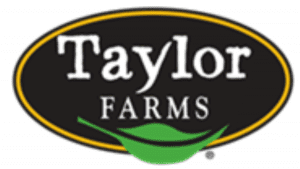Welcome to Blue Book!
Are you ready to join the thousands of companies who rely on Blue Book to drive smarter decisions? View our plans and get started today!
Still have questions? We’d love to show you what Blue Book can do for you. Drop us a line– we’ve been waiting for you.

Trade with confidence... every time.
Blue Book’s real-time alerts help you stay up to speed with everything in the produce industry

Trade with confidence... every time.
Blue Book’s real-time alerts help you stay up to speed with everything in the produce industry

Trade with confidence... every time.
Blue Book’s real-time alerts help you stay up to speed with everything in the produce industry
Do Words Speak Louder Than Deeds?
Plaintiffs with false labeling claims are likely to point to a company’s lack of compliance as a flagrant disregard of industry standards and as evidence the company’s labeling...
Plaintiffs with false labeling claims are likely to point to a company’s lack of compliance as a flagrant disregard of industry standards and as evidence the company’s labeling should be considered false, deceptive, or misleading.
Conclusions
Food safety is always the paramount concern for everyone in the food production chain and—as is usually the case—compliance with regulations and standards increases assurances that what reaches consumers meets those goals.
When it comes to the FTC’s Green Guides, following the guidance set forth by the FTC not only helps with food safety concerns, it also likely provides a significant weapon in the defeat of any class action premised on the notion that environmental packaging or label claims somehow deceived or misled consumers.
Reprinted from Food Safety magazine.
© 2014 Target Group, www.foodsafetymagazine.com.
Thomas Mahlum and Melissa Goodman are trial attorneys at Robins, Kaplan, Miller & Ciresi LLP and represent members of the food and beverage sector in disputes addressing key industry issues like distribution, commercial contracts, brand protection, and intellectual property rights.

News you need.
Join Blue Book today!
Get access to all the news and analysis you need to make the right decision --- delivered to your inbox.
What to read next
Superfresh Growers promotes organic line during Earth Month
In late 2024, Superfresh Growers launched an organic packaging line for smaller apples, and share their passion for sustainable farming.
South Mill Champs and Sprouts Farmers Market partner on sustainable mushroom packaging
South Mill Champs has partnered with Sprouts Farmers Market to introduce flow-wrapped bamboo tills for their mushroom products
Mexican avocado industry launches ‘Path to Sustainability’
The Avocado Institute of Mexico launched its "Path to Sustainability," a strategic initiative aimed at enhancing environmental stewardship
USTR revises structure in maritime fees decision
IFPA issued the following statement after the U.S. Trade Representative announced its decision to implement a new fee structure
Court of International Trade affirms dumping by Mexican tomato industry
The Court of International Trade today confirmed the Department of Commerce’s recent findings that Mexicans dumped tomatoes
Taylor Farms responds to outbreak lawsuits
“Taylor Farms product WAS NOT the source of the referenced 2024 E. Coli outbreak,” said Taylor Farms in a statement released April 17, 2025.
Subscribe to our newsletter
© 2025 Blue Book Services. All Rights Reserved






